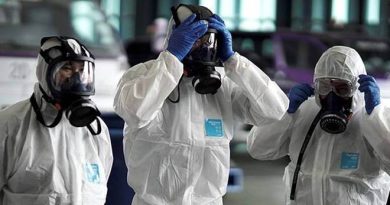90,000 Young U.S. Adults May Get Cancer This Year
[ad_1]
FRIDAY, Sept. 18, 2020 (HealthDay News) — Nearly 90,000 Americans between 15 and 39 years of age will be diagnosed with cancer this year and more than 9,200 will die, a new report projects.
One hematologist who deals with younger cancer patients said the shock of a diagnosis at this point in their lives can be overwhelming.
“This population is unique, they’re in the prime of their lives,” said Dr. Tina Bhatnagar, who specializes in blood cancers at Ohio State University Comprehensive Cancer Center in Columbus. She was not part of the report.
“On the younger end of the spectrum these patients are just starting to embrace their independence — a lot of them are finishing up high school or moving on to college and getting jobs. People who fall into the older end of the spectrum may have families of their own and established jobs, so they have a lot of other responsibilities,” Bhatnagar said.
In any case, she said, “the majority have never been sick a day in their life and now they’ve entered the world of hospitals and are introduced to a whole new cast of characters that comprise their medical team.”
Just which tumor types are most likely to affect people in their teens, 20s and 30s? According to the new report, thyroid cancer, testicular tumors and melanomas are the most common types seen among young white people.
Breast cancer rates among young Black people, however, are 14% higher than among whites — 26% versus 22% per 100,000, the report found.
And overall, cancer deaths are higher among Black people than white people (nearly 13 per 100,000 versus 9). Fifty-seven percent of Black patients survive lymphocytic leukemia, for example, compared with 71% of white patients. For breast cancer, the survival rates are 78% for Black people and 89% for white people.
“Although there has been rapid progress in the scientific understanding of cancer in [young adults] over the last decade, several research gaps in etiology [causes], basic biology, treatment and survivorship remain,” wrote the researchers led by Kimberly Miller, from the division of surveillance research at the American Cancer Society.
[ad_2]
Source link



